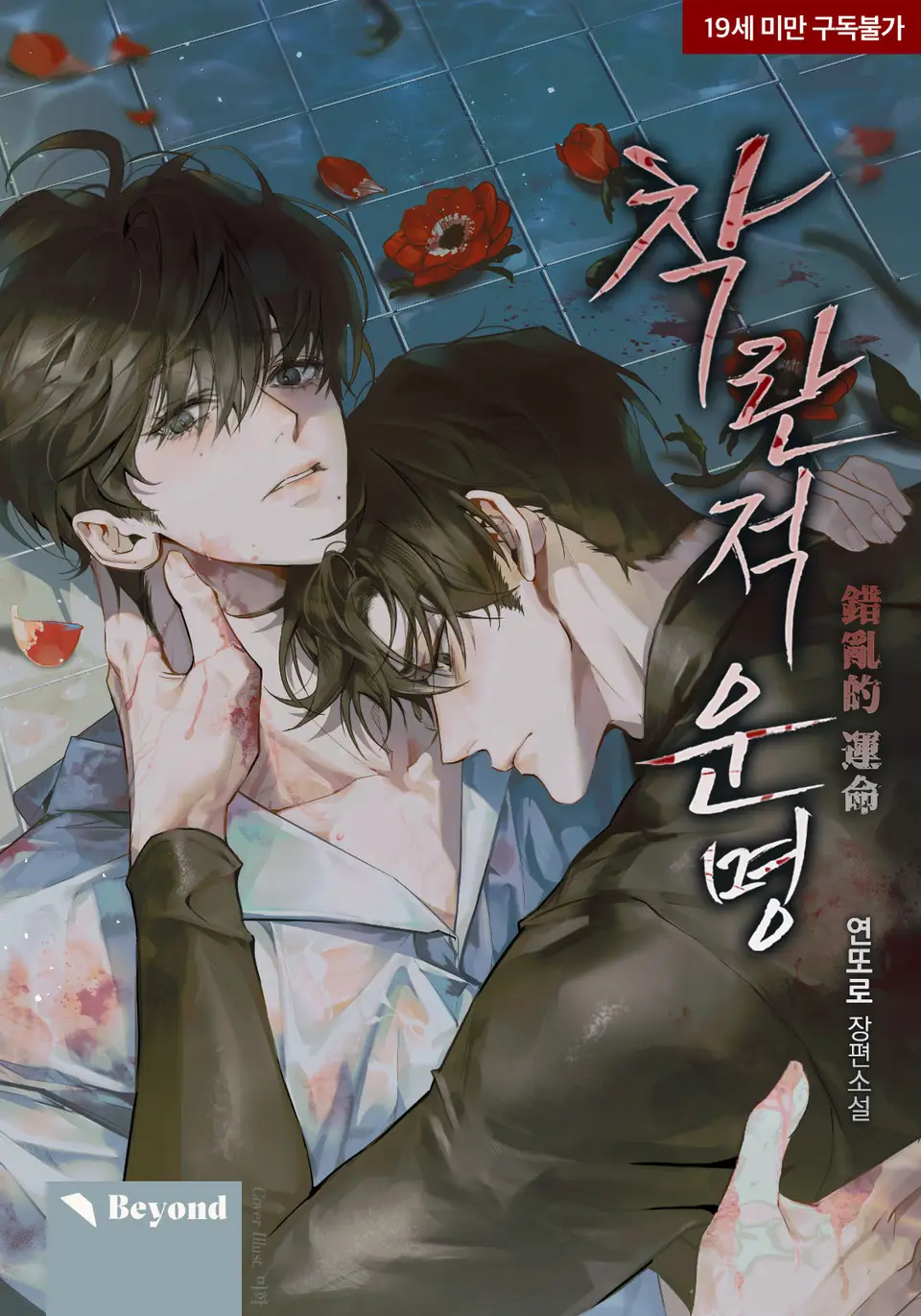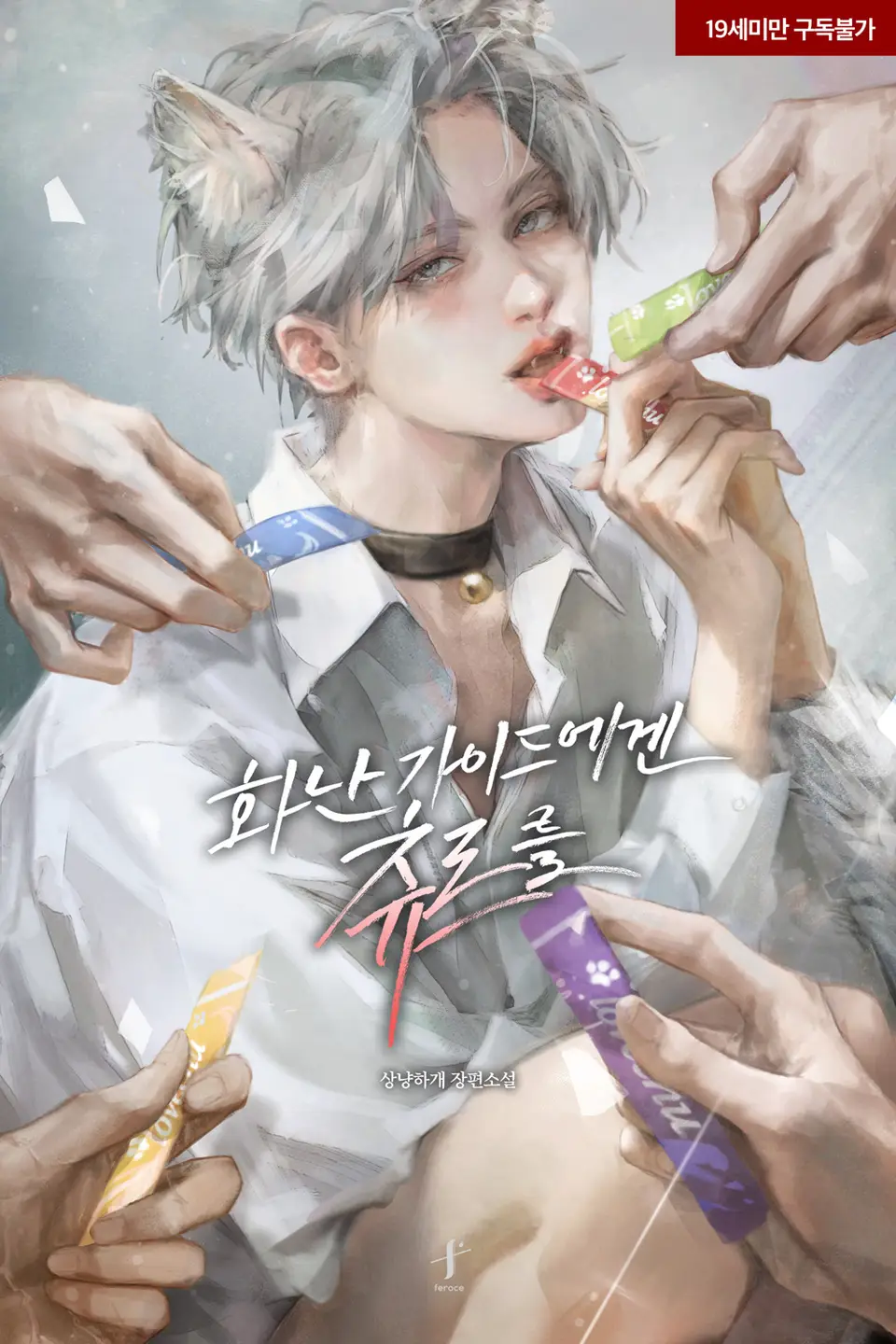This was the most glorious and carefree period of Li Shanqing’s life, yet when he later recalled it, he felt it passed too quickly, as if it had never happened in his life.
Perhaps because it was so brief.
Like a summer day at a lawn party, where someone places a delightful pat of cool butter in a skillet, and once the heat is on, it melts completely in no time.
In July, Li Shanqing began an internship at Professor Whitaker’s research center. The professor liked him, granting him lab access and offering plenty of advice on his project. During this time, he formed his final team: Fang Tinghan, also from Bingang; Allen, met through the freshman community; senior Zhao Zixi, whom he pestered at the center; and Victor, a wealthy heir who hit it off with him after hearing his full plan.
In September, they started preparing for a pitch to enter the university’s startup incubator.
Their new project was a lightweight, single-implant medical sustained-release capsule with superior biocompatibility, requiring minimal implantation expertise. In Li Shanqing’s eloquent words, it would be a convenient lunchtime surgery, though it wasn’t that simple. Fang Tinghan and Zhao Zixi found his description somewhat unrealistic, while Victor thought it was great, believing such rhetoric would attract investors more easily.
Functionally, their device resembled Creland Company’s, but privately or publicly, Li Shanqing described Creland’s as clunky, with a cumbersome design and traditional implantation method—form without substance. As for SyncPulse, he now called it an overly serious medical device, outside comparison. They also avoided SyncPulse’s implantation site, meaning the technologies could coexist.
At its core, Li Shanqing admitted he designed this project for himself, seeking a shortcut to health. Miraculously, over these six months, his body caused no major issues. Hence, these were his best days.
He pulled many late nights, earning multiple scoldings from Mary for returning late, and caught a minor cold in autumn from wearing too little, but he didn’t develop lung issues. It was as if old symptoms had been successfully distilled from him by Fancheng’s sunshine and dryness, leaving only health and fulfillment.
Meanwhile, news of Weiyuan Biotech forming a joint venture with a major Licheng pharmaceutical company to expand overseas markets was everywhere, and Zhuang Xu became a high-profile busy figure. Though time zone differences lessened, meeting seemed even harder.
After all, Zhuang Xu was so young, so successful, handsome, and well-mannered—what media outlet wouldn’t love him? A two-year-old dispute with the company’s COO was dredged up, with reporters interviewing anonymous sources, weaving a tale portraying Zhuang Xu as a hero slaying a dragon. During breaks, Li Shanqing searched and read every article, wondering how he’d appear in the news someday. What clothes would he wear?
Li Shanqing had been called doll-like and delicate since childhood, but he hoped to project a very cool image in the media. He practiced Zhuang Xu’s speech style in front of a mirror, an even more expressionless version, but always ended up laughing.
When Li Shanqing later appeared in the news, his expressions were indeed minimal, his responses cold. But it wasn’t because he wanted to seem cool.
In late December, Zhuang Xu passed through Fancheng and was finally willing to meet Li Shanqing again. The day before Li Shanqing’s birthday, he arrived suddenly, saying he was driving through. Li Shanqing immediately ordered him to stop and wait, abandoning his collaborators to sneak out of the lab.
“Shanqing, who are you meeting?” even the composed senior Zhao teased, “Your shoes are about to run off.”
Zhuang Xu’s visit was brief. He said he was inspecting factory sites in the state with executives from a partner company, hence passing through Fancheng. Dressed professionally, as if ready for TV, Zhuang Xu was brought home by Li Shanqing, where Mary made them a brunch-dinner.
Zhuang Xu chatted with Mary, both casually praising Fancheng’s weather. Li Shanqing strongly suggested Zhuang Xu buy a house nearby: “I can help you look at properties. Auntie would love it here too; why not move over?” He was ruthlessly rejected.
Life became vibrant and charming, like a new map unfolding, every blade of grass and tree captivating his attention. Li Shanqing reveled in it, reluctant to leave. These days were vivid to him, each one a glowing particle, shimmering in the air as time carried them, sustained by the smooth progress of his dreams.
But not long after, the expiration date for health and success arrived in March, when he went to the incubator’s venture space for the spring pitch, and it all ended.
In any later period, Li Shanqing himself avoided mentioning that day’s events. Except to Zhuang Xu, he never shared his self-assessment of that time.
Because mentioning it meant admitting his mistakes. And that day, media were present, recording everything, later often played in introductory videos about him. Those who loved or hated him had all seen it, so Li Shanqing didn’t need to bring it up himself.
—As for the specifics, perhaps it was because he was too successful, too eager to succeed, and oversimplified everything.
Too desperate for attention, too unwilling to disappoint partners, Li Shanqing, while pitching their lightweight single-point implant device, spoke too passionately, went off-script, and said things akin to what Zhuang Xu had once criticized—things he shouldn’t have—ruining everything.
Of course, at nineteen, Li Shanqing was more thoughtful, not without embellishing these theories. But roughly from when he said, “Precise neural modulation lets people escape emotional shadows, like subscribing to your favorite TV show to subscribe to your emotions,” several judges and mentors in the audience visibly changed expressions.
After his speech, during the Q&A, he faced immediate, sharp questioning without buffer. It was the most intense ten-minute Q&A of the event, far exceeding others’, resembling a war criminal’s interrogation. Professor Whitaker and two investors spoke in his defense, but it couldn’t hide his failure.
Li Shanqing indeed avoided discussing it but didn’t shy from admitting this failure, often reflecting on it. He later concluded his biggest mistake was not deftly defusing group criticism. Facing the audience’s attacks and doubts, his responses weren’t as smooth as they’d later become, gradually showing a lack of confidence—a fatal flaw.
It didn’t take long for Li Shanqing to grow and learn to dismiss doubts, but that day, he was deeply shaken. After the pitch, he barely recalled leaving the hall. The five team members were silent, not chatting. Only Zhao Zixi and Fang Tinghan patted his shoulder in comfort.
By then, Li Shanqing’s head was spinning, his skin numb, feeling unwell. Back home, he discovered his urticaria had flared up.
The urticaria was severe, and more humiliatingly, this illness wasn’t due to uncontrollable health factors but his own negligence, leading to the pitch’s collapse and his mental inadequacy.
Rushed to the hospital, only Mary was by his side. The ambulance windows showed a darkness like Fancheng’s bleakest day, with few cars on the road and no stars in the sky. Mary wanted to call his parents, but he stopped her. Li Shanqing didn’t want them to know about his failure or the cause of his illness.
During his week in the hospital, his urticaria subsided slowly, and he was groggy, sleeping and waking, taking leave, barely able to do anything.
Among his collaborators, Allen and Victor quit the project. Zhao Zixi and Fang Tinghan visited a few times, urging him to recover and promising to stick with him.
This major life setback, Li Shanqing gradually accepted while sick. In rare lucid moments, he opened his laptop, intermittently revising plans and discussing with partners. Mary disapproved, timing him; after half an hour, she’d scold him, and he’d obediently close the laptop.
He didn’t want to tell Zhuang Xu, who represented true success, while he was now a virtual failure. But if he didn’t share, Zhuang Xu wouldn’t reach out. So for three days, they had no contact. On the fourth evening, Zhuang Xu called.
Li Shanqing had just eaten and taken medicine, feeling drowsy, and answered, “Zhuang Xu?”
Zhuang Xu hummed, paused, and said, “I’m heading to Licheng tonight and will stay longer this time.”
“Huh?” Li Shanqing teased habitually, “What are you hinting at? Asking me out on a date?”
“Date” was Victor’s favorite term, often used to speculate why collaborators skipped group gatherings, widely adopted by the team, even after Victor left.
Hearing “date,” Zhuang Xu likely went silent, exasperated, but didn’t threaten to hang up over Li Shanqing’s joking. After a brief pause, he asked, “Been busy these days?”
Li Shanqing was always guarded about others knowing of his illnesses and hospitalizations, replying instinctively, “Mr. Li’s always busy. First day you noticed?”
After saying it, he felt a bit like seeing Zhuang Xu.
Honestly, Zhuang Xu wasn’t as kind to him now as in Bingang; they weren’t as close. Li Shanqing was used to lying in hospital beds alone, almost forgetting Zhuang Xu’s face. Yet, for some reason, he wanted to see this person he hadn’t seen in so long.
Perhaps because when physically weak, his heart was too, and too scared to tell his parents, he projected his emotions onto the person who’d just called.
Zhuang Xu didn’t play along, also calling him Mr. Li, only asking, “Busy with what?”
“Secret,” Li Shanqing said, rolling over, accidentally pressing the IV needle in his hand, nearly yelping as his heart raced in pain, but he endured, saying, “Guess where I am?”
“I don’t want to guess,” Zhuang Xu said, as coldly as ever, but after two seconds, he asked, “Are you in the hospital?”
Li Shanqing said, “Yeah.” Not wanting to seem pitiful, he added breezily, “So we can’t hang out if you come to Fancheng. Visit me next time.”
“Is it serious?” Zhuang Xu asked. “What’s wrong?”
“Acute urticaria.”
After that, they fell silent briefly. Li Shanqing didn’t know why Zhuang Xu was so quiet, making it feel like he was emotionally manipulating him, so he got annoyed: “Why aren’t you talking? I’m not asking you to visit. I’m fine with Mary. Even my parents don’t know. I know you’re super busy. If you don’t want to talk, I’ll hang up.”
“…No,” Zhuang Xu sounded somewhat helpless. “Which hospital? I’ll come find you first.”
Li Shanqing didn’t know what Zhuang Xu meant by “first.” He gave him the hospital address, slept deeply without dreams, and woke feeling better. While getting an IV, he typed one-handed, finishing assignments for two courses, ate lunch, napped, and opened his eyes to find someone by his bed.
Zhuang Xu was on his phone, replying to messages. His phone wasn’t the latest model, and he wore a plain black jacket without a logo, looking casual, far less successful than Li Shanqing imagined. It reminded him of their time in Bingang.
When they first met, Li Shanqing waited at a café for Zhuang Xu, who picked him up wearing similar clothes. But that jacket was given to Li Shanqing; this one was just similar. Over two years had passed, feeling like last century to Li Shanqing, yet like yesterday. They’d known each other so long, he thought dazedly, wondering if he’d been too busy chasing dreams to notice.
Seeing Li Shanqing awake, Zhuang Xu put down his phone, initially silent. The curtains were drawn, the ward lit only by the entryway light, faintly reaching the bed. Zhuang Xu’s skin still looked fair, smooth, and real, his gaze purely clear.
“You’re here. Where’s Mary?” Li Shanqing, usually eloquent, was tongue-tied just waking up.
Zhuang Xu said, “I sent her home to rest.” Li Shanqing asked, “You came from Licheng?” Calculating, the timing seemed off. Zhuang Xu said, “No, direct flight.”
…So good to me.
Li Shanqing wanted to say that, but because Zhuang Xu was inexplicably so kind this time, he couldn’t. After a brief pause, he asked, “Want to shower? My room has a bathroom.”
“No need,” Zhuang Xu said. “I booked a hotel.”
Li Shanqing looked at him, reaching out with his left hand, taped with an IV needle, to gently take Zhuang Xu’s hand. Zhuang Xu let him, not resisting. His hand was warm but not hot. Li Shanqing held it to his face. His family did this when he was sick, stroking his face, saying he’d be fine soon.
“Zhuang Xu,” Li Shanqing closed his eyes, moved, saying, “Besides my parents, grandparents, and Mary, you’re the best to me.”
It was praise, yet he thought he heard Zhuang Xu sigh, unsure why.
He told Zhuang Xu about his acute urticaria, omitting specifics, only saying, “I’ve come to terms with failure,” and shared future plans: first, to toughen his mind, becoming an iron-willed person unshaken by a thousand arrows!
It made Zhuang Xu laugh.
“Focus on getting better first,” Zhuang Xu said, pulling his hand back to pat Li Shanqing’s head. Then his phone buzzed; he answered, and someone seemed to say something was delivered. Zhuang Xu said, “Okay,” and told Li Shanqing, “I’ll step out.”
Zhuang Xu left the room. After about five minutes, Li Shanqing grew impatient, wondering what he was doing. He went out, passing the corridor, asking the nurse at the desk if she’d seen his visitor. She said Zhuang Xu ordered takeout but didn’t take it to the ward, going to the common lounge instead.
“I asked why he didn’t eat in the room,” the nurse said. “He said the burger wasn’t cold, so it’d smell. Do you hate smells?”
Actually, Mary often ordered food to eat in the room. Li Shanqing didn’t know how Zhuang Xu knew he disliked smells, as he’d never mentioned it, though he indeed wasn’t fond, but not overly bothered. At the lounge door, from a short distance, he saw Zhuang Xu alone inside.
Zhuang Xu stood, half-facing away, eating a burger at a steady pace, quietly, like someone consuming essential nutrients to survive.
Li Shanqing watched briefly, feeling an unfamiliar emotion, as if the distance between him and Zhuang Xu had suddenly closed, becoming one. Then his phone buzzed in his pocket, and he returned to the ward to answer.
It was Lu Zhengming, an incubator investor, a call that changed Li Shanqing’s fate. Yet he answered in a normal tone, his mind still on Zhuang Xu’s image.
Li Shanqing had never eaten a burger, but thinking of Zhuang Xu, he felt a magical connection, as if Zhuang Xu eating meant he was too.
This strange sensation was hard to forget, one reason Li Shanqing later made his wish list.









